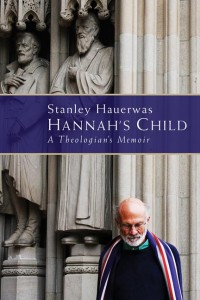 [1]From Oliva Blanchette, author of The Perfection of the Universe According to Thomas Aquinas: A Teleological View [2], Philosophy of Being: A Reconstructive Essay [3] and translator of Blondel’s L’Action (1893) [4], comes Maurice Blondel: A Philosophical Life [1] (Eerdmans, 29 April 2010, 840 pp).
[1]From Oliva Blanchette, author of The Perfection of the Universe According to Thomas Aquinas: A Teleological View [2], Philosophy of Being: A Reconstructive Essay [3] and translator of Blondel’s L’Action (1893) [4], comes Maurice Blondel: A Philosophical Life [1] (Eerdmans, 29 April 2010, 840 pp).
French philosopher Maurice Blondel (1861–1949) had a tremendous impact on both philosophy and religion over the first half of the twentieth century. He was at once a postmodern critical philosopher and a devout traditional Catholic who strove to keep these two sides of his life in unison, neither separating nor confusing them.
In this first-ever critical examination of Blondel’s entire life and work, Oliva Blanchette tells of Blondel’s stormy confrontation with an academy dismissive of religion and a religion uncomfortable with rational philosophy. The book not only recounts Blondel’s biographical history but also presents his systematic philosophy, from the beginning of his journey to its culmination in Philosophical Exigencies of Christianity, the book for which he signed the publishing contract the day before he died. Blanchette avoids footnotes but includes an extensive bibliography, making this both a readable and a useful resource.
 [5]Also forthcoming is Stanley Hauerwas’ memoir entitled Hannah’s Child: A Theologian’s Memoir [5] (Eerdmans, 29 April 2010, 288 pp).
[5]Also forthcoming is Stanley Hauerwas’ memoir entitled Hannah’s Child: A Theologian’s Memoir [5] (Eerdmans, 29 April 2010, 288 pp).
A loving, hard-working, godly couple has long been denied a family of their own. Finally, the wife makes a deal with God: if he blesses her with a child, she will dedicate that child to God’s service. The result of that prayer was the birth of an influential — some say prophetic — voice. This is the story of Stanley Hauerwas, once named by Time magazine as the “best theologian in America.” In this compelling memoir he gives a frank account of his own life interwoven with the development of his thought.
The story of Hauerwas’s journey into Christian discipleship is captivating and inspiring. With genuine humility, he describes his intellectual struggles with faith, how he has dealt with the complex reality of marriage to a mentally ill partner, and the gift of friendships that have influenced his character. Throughout the narrative shines Hauerwas’s conviction that the tale of his life is worth telling only because of the greater Christian story providing foundation and direction for his own.
